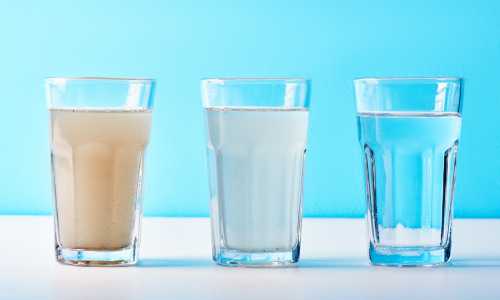In today’s world, where pollution and contamination are ever-present threats, the importance of water filtration cannot be overstated.
Clean, pure water is not just about taste or clarity; it’s about health, safety, and ensuring that every drop we consume is free from harmful contaminants.
Water filters play a pivotal role in this purification process, acting as the last line of defense between potential waterborne threats and our health. Among the myriad of water filters available on the market, ZeroWater has carved a niche for itself.
But a pressing question that many potential users and enthusiasts often ask is: How long does a ZeroWater filter last? This article delves deep into this query, exploring the intricacies of ZeroWater’s filtration system and its longevity.
Key Takeaways
- ZeroWater’s unique five-stage filtration process ensures comprehensive contaminant removal.
- Filter lifespan varies based on water quality, usage frequency, and TDS levels. Regular TDS meter readings help monitor filter condition.
- Users have diverse experiences with filter longevity, with some finding longer life by following guidelines.
- ZeroWater filters can last longer than some popular brands, depending on water source quality and usage frequency.
Understanding ZeroWater Filters
ZeroWater stands as a beacon in the water filtration industry, renowned for its commitment to delivering pure, clean water to households. As a brand, ZeroWater has consistently emphasized its dedication to quality and innovation, ensuring that users get the best possible water quality.
Diving into the technology behind ZeroWater’s filtration system
The brand boasts a unique five-stage filtration process, which is more comprehensive than many competitors that often rely on two or three stages.
This advanced system is designed to remove virtually all dissolved solids, ensuring that the water is not just clean but also tastes pure.
| Aspect | Information |
|---|---|
| Filter Lifespan | ZeroWater filters typically last for 20-40 gallons of water. |
| Replacement Frequency | Replace the filter when the TDS (Total Dissolved Solids) reading on the included meter reaches 006 ppm (parts per million). This ensures the best water quality. |
| Cost of Replacements | Replacement filters are available for purchase and cost varies, but it’s important to factor in the cost of filter replacements when considering the overall expense of using ZeroWater. |
| Filtration Technology | ZeroWater uses a 5-stage filtration system, including a combination of activated carbon, ion exchange resin, and other media to remove contaminants and provide clean, great-tasting water. |
| Testing Water Quality | The included TDS meter allows you to check the quality of the filtered water and determine when it’s time to change the filter. |
| Maintenance | Regularly clean and rinse the water reservoir and dispenser to ensure the best performance and longevity of the filter. Follow the manufacturer’s instructions for maintenance. |
Factors Influencing Filter Lifespan
The lifespan of a ZeroWater filter isn’t a fixed number; it varies based on several influencing factors. Understanding these can help users maximize the longevity of their filters:
Quality of the source water
The presence of contaminants and impurities in the source water directly impacts the filter’s lifespan. Water with higher contamination will require the filter to work harder, leading to faster exhaustion.
Frequency of filter usage
Just like any other product, the more frequently a filter is used, the quicker it will need replacement. Households consuming large volumes of water daily might find themselves replacing filters more often.
Total Dissolved Solids (TDS) levels
TDS represents the combined content of both organic and inorganic substances in water. A higher TDS level indicates more dissolved contaminants, which can reduce the filter’s lifespan. ZeroWater’s unique TDS meter allows users to monitor this, providing a tangible measure of when a filter change might be imminent.

Being aware of these factors ensures that users can make informed decisions about filter replacements, ensuring optimal water quality at all times.
Official Stance from ZeroWater
ZeroWater has been transparent about its products, providing users with clear guidelines and information. Here’s what the brand officially states:
ZeroWater’s claims regarding filter lifespan
ZeroWater does not provide a one-size-fits-all answer to filter lifespan. Instead, they emphasize that the lifespan is influenced by the factors previously discussed, especially the quality of the source water.
The significance of the TDS meter readings
The brand highly recommends using the provided TDS meter to monitor water quality. A reading that starts approaching “006” is an indicator that the filter is nearing its end and might require replacement soon.
User Experiences and Testimonials
The true test of any product often lies in the hands of its users. When it comes to ZeroWater filters, the feedback has been diverse, reflecting a range of experiences:
Positive feedback on filter longevity:
- Many users have reported that their ZeroWater filters lasted longer than they anticipated, especially when following the brand’s guidelines and using the TDS meter regularly.
- The noticeable improvement in water taste and clarity has been a recurring highlight in many testimonials, with users attributing this to the filter’s effectiveness over its lifespan.
Concerns and criticisms regarding filter lifespan:
- Some users have expressed that their filters needed replacement sooner than expected, especially in areas with high contamination levels.
- A few have mentioned inconsistencies in filter longevity, even when using water from the same source.
Comparing ZeroWater with Other Filters
In the vast realm of water filtration, ZeroWater finds itself amidst fierce competition. How does it fare when compared to other popular brands?
Lifespan of ZeroWater filters vs. other popular brands
- While the lifespan of ZeroWater filters is influenced by various factors like water quality and usage frequency, many users have found them to last comparably longer than some other mainstream filters.
- Brands like Brita and PUR, for instance, often recommend monthly filter changes, while ZeroWater filters can sometimes last longer, depending on the water source.
Factors that make ZeroWater stand out
- The unique five-stage filtration process ensures a comprehensive removal of contaminants, setting ZeroWater apart from many two or three-stage filters.
- The inclusion of a TDS meter in every product package empowers users to monitor water quality actively, a feature not commonly found with other brands.
Extending the Life of ZeroWater Filters
Maximizing the lifespan of a ZeroWater filter can lead to cost savings and consistent water quality. Here’s how users can get the most out of their filters:
Tips and tricks from users:
- Regularly monitor the TDS levels using the provided meter to avoid overstraining the filter.
- Ensure the filter is seated correctly in the pitcher
- or dispenser to prevent unfiltered water from mixing with the filtered water.
Maintenance and care for longer filter life:
- Clean the pitcher or dispenser regularly to prevent any buildup or contamination.
- Store the filter in a cool, dry place when not in use to maintain its efficacy.
Frequently Asked Question
How does TDS affect filter lifespan?
TDS, or Total Dissolved Solids, represents the combined content of organic and inorganic substances in water. A higher TDS level indicates more dissolved contaminants. When a filter has to tackle water with high TDS levels, it tends to get exhausted faster as it works harder to purify the water. Thus, areas with high TDS levels might require more frequent filter replacements.
What are the signs of needing a filter replacement?
The most evident sign is a change in the taste or smell of the water. Additionally, a TDS meter reading approaching “006” is a clear indicator that the filter is nearing its end. Slow filtration rates can also be a sign that the filter is getting clogged and needs replacement.
Can external factors, like temperature, impact filter life?
Yes, external factors can influence filter lifespan. Storing the filter in extremely hot or cold conditions can affect its efficiency. It’s best to store filters in a cool, dry place and avoid exposing them to temperature extremes.

Mark is a seasoned Outdoor Equipment and Heating Appliances specialist. With a passion for adventure and a keen understanding of heating solutions, he brings expertise to the world of outdoor enthusiasts. Mark’s insights, gained through years of experience, make him a go-to resource for those seeking reliable guidance in navigating the realm of outdoor gear and heating technologies.

